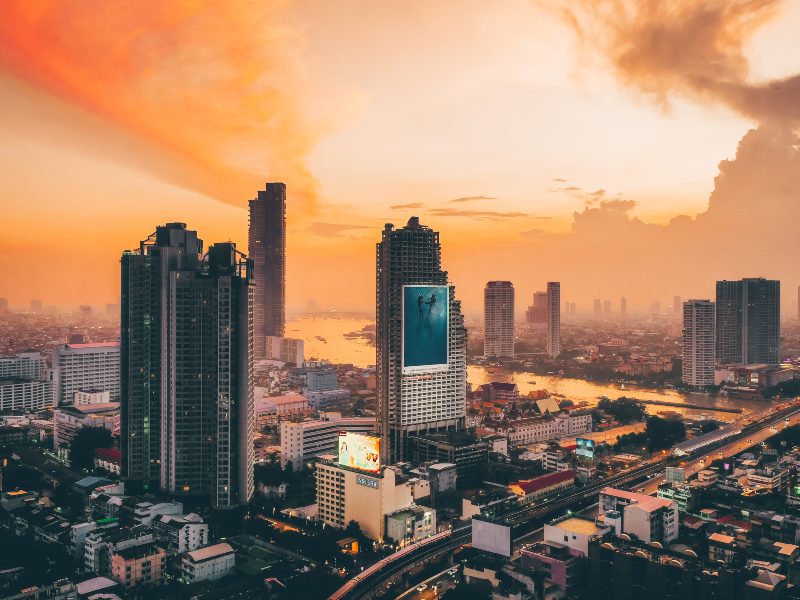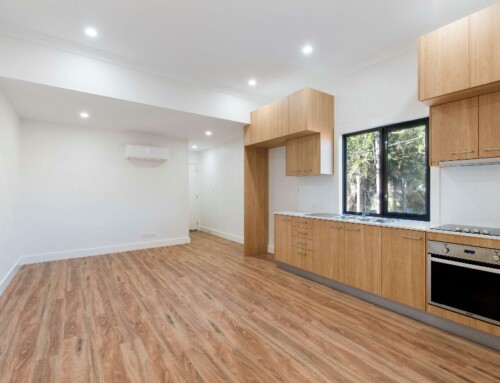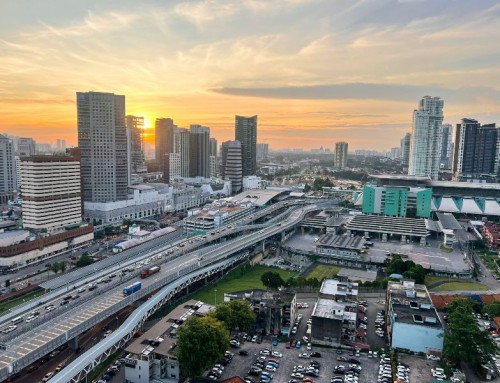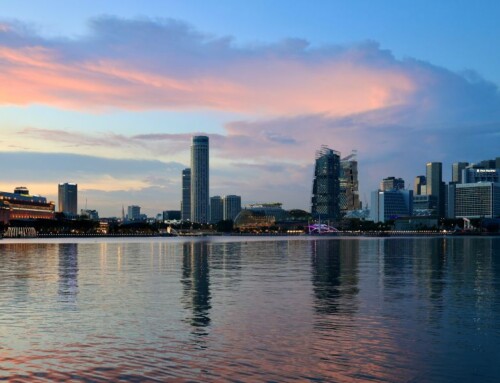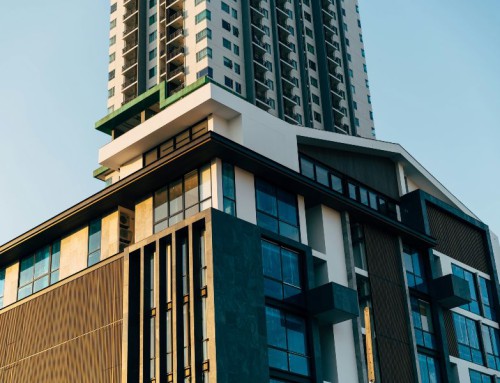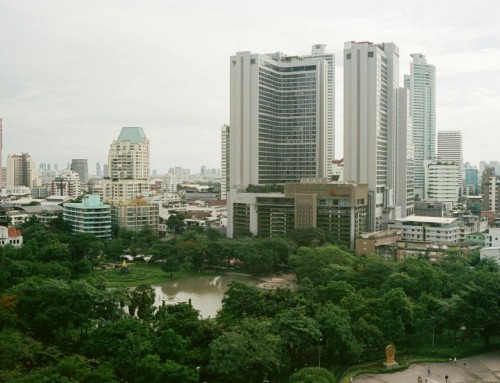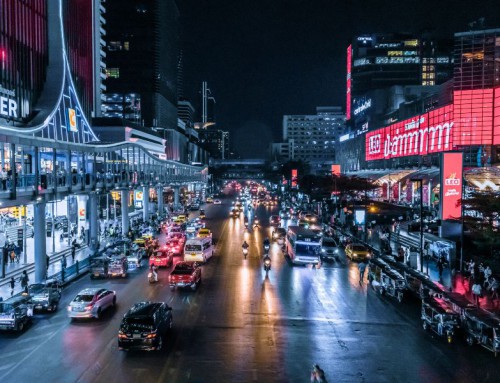The Bangkok property market has been adversely hit by the COVID-19 pandemic. Based on DDProperty’s Thailand Consumer Sentiment Study, 75% of consumers delayed their property transactions, 32% felt higher uncertainty about property prices and 31% had difficulties securing home loans. It is important to note that the changes to the loan-to-value (LTV) requirements by the Bank of Thailand did put a damper on home buying. There was a slight relaxation of the LTV requirements in early 2020 but it was not sufficient to support demand. The fallout from the pandemic not only hit the property market but businesses overall. Tourism generally accounts for about 20% of Thailand’s GDP and the closure of borders is affecting the kingdom negatively. Investors of Thailand property, and more specifically Bangkok property, are noticeably holding back on their purchases. To consider the fallout from the COVID-19 pandemic, we have to take a look at a few factors before deciding whether the Bangkok property market still has a decent upside in the near future.
Let us first understand the Bangkok property market.
The government is not the major landowner in Bangkok
The fact that the state does not own a significant amount of land in its capital means that it cannot directly affect the pricing of land by regulating supply. Significant would mean an amount where prices of land can be regulated through land sales. This is how cities like Singapore and Hong Kong have regulated their land prices which then affect property prices. Privately owned land still makes up a large proportion of the land in Bangkok. While the actual amount cannot be ascertained, it is very common for land in Bangkok to be acquired by a property developer for redevelopment. While Bangkok is approximately 1,570 square kilometres in size, not every plot of land in Bangkok will see appreciation. In fact, if you factor in the prime locations which warrant consideration for investment due to the possibility of future price appreciation, that amount of land is not significant. Look at areas along the green BTS line close to the heart of the city. Places like Chidlom, Ploenchit, Asoke, Thong Lor, Ekkamai, On Nut, Phayathai, Ari and Lad Phrao. Include areas in Silom and Sathorn as well as the Rama 9 area and effectively the actual “investable” areas in Bangkok go down significantly. The private land ownership in these areas is extremely high. I personally cannot think of an instance where there was a government land sale and there was an aggressive bid from the various developers which eventually became a landmark development in these prime areas. Instead, Bangkok is going through a period of rejuvenation. Old developments like nightclubs and shophouses are making way to new developments. One particular development that springs to mind is Park Origin Thonglor. It now sits on the land which once housed Area 10. This was an area which hosted one of the more popular nightclubs along Thong Lor as well as a futsal pitch. The developer, Park Origin, purchased the land from the original landowner and on it now sits the completed Park Origin Thonglor.
The Thai government is not as active in regulating the Thai property market
This is in comparison with the governments in Singapore and Hong Kong. While these governments have chosen to introduce high buying taxes to taper the demand for properties, the Thai government has not done the same. This is despite the fact that the Thai property market increased significantly before the pandemic. This lack of intervention signals that the private players have more power to dictate the Thai property market. The private Thai developers do influence the market through the supply of new launches. When the Thai property market was accelerating during the period from about 2017 up to just before the pandemic, there was a significant number of new condominium launches every month. There is also no requirement for the developers to sell all the units in the development within a certain period of time. This meant that it was common for Thai developers to hoard units in anticipation that prices would increase in the future. In many cases, these developers may also be hoarding vacant land. This however has been slightly tapered as the Thai government introduced taxes recently to combat the non-use of such land.
Thailand is a premier retirement destination in Asia
In fact, Thailand is the only Asian country listed in the top 10 of the 2023 Annual Global Retirement Index which was compiled by Forbes Magazine. Thailand provides a plethora of visa options for people looking to retire in the kingdom. In fact, those over the age of 50 will find it even easier to apply for the relevant visas to retire in Thailand. While these retirees may not all be looking to Bangkok to retire, Bangkok still retains the allure due to its business-friendly stance as well as its excellent yet affordable healthcare. No matter the pandemic, Bangkok will always retain its charm for retirees and due to its connectivity with the rest of the world, provides an excellent option to those looking to shuttle back and forth between Bangkok and their home countries. Just for a point of reference, Bangkok is the most visited city in the World according to a study by Mastercard. Demand for rental has always been strong. During the pandemic, rental rates did drop precipitously. This was because there was a lack of demand. However, those properties with good locational attributes still saw demand from tenants albeit much lower rental rates. However, as I have always reiterated, low rent is better than no rent. Once the borders were opened and international travel resumed, rents started shooting up. As of today, in 2023, rents have recovered somewhat to pre-pandemic levels.
Push factors must be taken into consideration
Bangkok as a property investment destination should also be considered alongside the other property hotspots in the region. Two cities spring to mind. Singapore and Hong Kong. The local governments in these cities have introduced extremely unfavourable buying taxes. Especially for foreigners buying properties in these cities. For example, the Singapore government has introduced an additional 60% tax on foreigners purchasing properties in the city-state. This is on top of the existing buying taxes of about 4% of the purchase price. Hence, a foreigner looking to purchase a USD$1 mill property in Singapore will have to fork out USD$640,000 in taxes for that property. The tax payable, in most cases, is equivalent to a luxury property in Bangkok. These considerations must be playing in investors’ minds as we have seen a recent uptick in demand for Thai properties.
You can legally own a condominium in Thailand as a foreigner
While the purchase of local land is still not possible, foreigners can legally own a Thai condominium in their own name. In fact, this even applies to freehold condominiums. This means that there is no need to set up corporate structures with nominee structures to own properties. So long as countries like Indonesia and Vietnam continue to restrict foreign ownership of condominiums, Bangkok will continue to have this upper hand. While not that it needed it to differentiate itself from the competition, the fact that foreign ownership of freehold condominiums is allowed just serves to reinforce the fact that Thailand is extremely foreigner friendly. This fact is often overlooked. When it comes to property investment, being able to enforce your strict legal rights is extremely important. Having to navigate a foreign legal system using a system of nominee and corporate structures is never as secure as having the property in your personal name. The next step would be for Thailand to allow foreigners to purchase land. There was a backlash at the end of 2022 that reversed such a decision. We are still monitoring this sphere to see how this develops.
With all these factors at the back of our mind we can now consider…
Has COVID-19 affected the Bangkok property market?
Well yes, it has. Negatively. Rents are a lot lower. Bangkok is not only a retirement destination but a business destination. There are many multinational corporations in Bangkok and once borders closed, it is only reasonable to expect that many of these expatriates working in Bangkok will choose to go back to their home countries. Bangkok does not have the same family-friendly factors as compared to a place like Singapore. For example, the international school system is still lacking. Hence the people who are posted or are working in Bangkok usually choose to come to Bangkok alone. They may choose to leave their children back in their home country where the education system may be better. For example, a person from the UK may choose to leave his spouse and children in the UK to prevent uprooting his children from an already strong education system.
COVID-19 is truly a black swan event. No one could have predicted that the pandemic would ravage the global economy and cause international travel to a standstill. The level of stimulus that was required to prop up the global economy has caused inflation to emerge while the pandemic recedes. Just about worldwide, the value of every currency is falling. Hence, properties, as always, are seen as a hedge against inflation. Bangkok properties are no different. This flight to safety can be felt. When borders were about to reopen, the demand for Bangkok properties picked up rather quickly. Expatriates needed to move back to the city and investors, wary of inflation, are looking to park their monies in brink and mortar assets.
One thing that the pandemic did not change was the developmental plans that were present in Bangkok. The Bangsue Grand Station was still completed and the rail network was expanded to alleviate the huge traffic jams in the city. Bangkok is still pivotal to China’s One Belt One Road plans. The Bangsue Grand Station is still the station which will connect Bangkok to Kunming, China. It is still the midpoint to the rest of South East Asia. It is still proceeding with its earlier plans to digitise and upscale its economy.
The key to property investment in Bangkok will always be risk appetite as well as having a longer timeframe to truly realise the seemingly potential upside. With low purchase taxes, easy and legal routes to property acquisition and positive growth plans, Bangkok can be a valid consideration for all who are looking to purchase properties overseas. As always, we must always be prepared for the unexpected. For those who held on to properties in Bangkok during the pandemic and did not sell, they did not book any losses. Always remember that paper losses are not actual losses just like paper gains are not actual gains.
Yours sincerely,
Daryl
